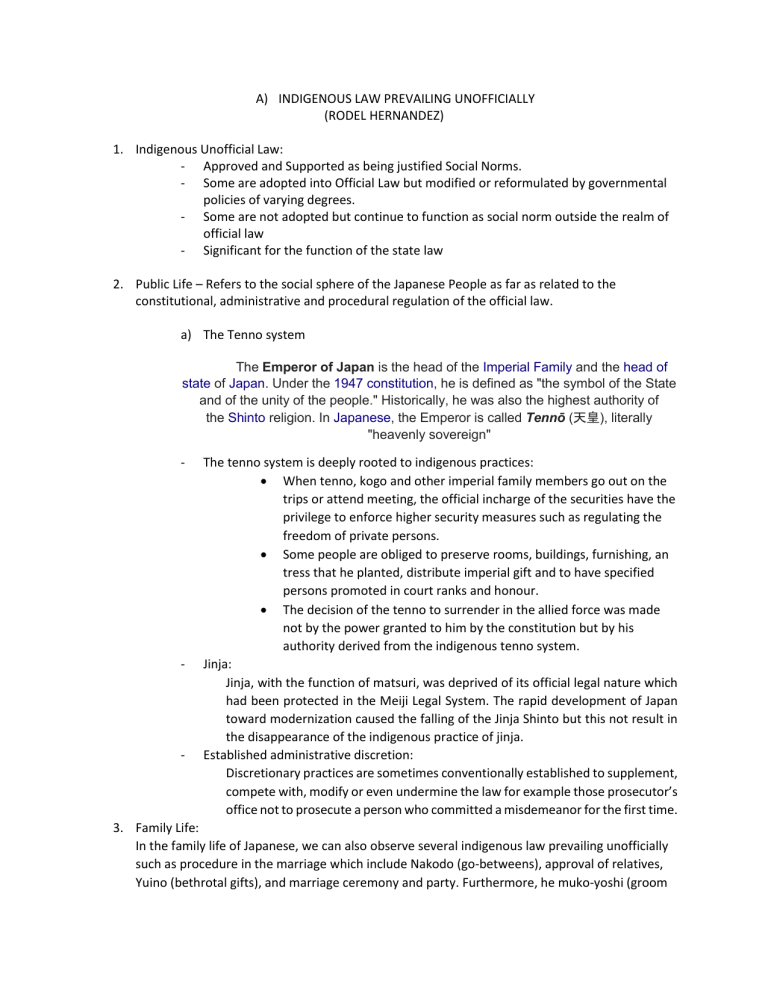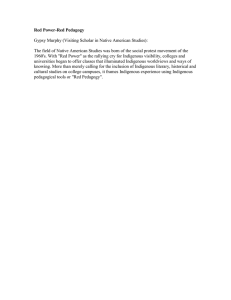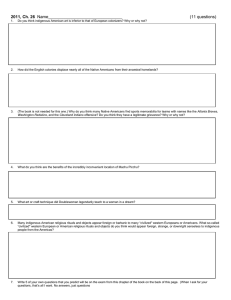Indigenous Law in Japan: Unofficial Practices & State Law
advertisement

A) INDIGENOUS LAW PREVAILING UNOFFICIALLY (RODEL HERNANDEZ) 1. Indigenous Unofficial Law: - Approved and Supported as being justified Social Norms. - Some are adopted into Official Law but modified or reformulated by governmental policies of varying degrees. - Some are not adopted but continue to function as social norm outside the realm of official law - Significant for the function of the state law 2. Public Life – Refers to the social sphere of the Japanese People as far as related to the constitutional, administrative and procedural regulation of the official law. a) The Tenno system The Emperor of Japan is the head of the Imperial Family and the head of state of Japan. Under the 1947 constitution, he is defined as "the symbol of the State and of the unity of the people." Historically, he was also the highest authority of the Shinto religion. In Japanese, the Emperor is called Tennō (天皇), literally "heavenly sovereign" - - - The tenno system is deeply rooted to indigenous practices: When tenno, kogo and other imperial family members go out on the trips or attend meeting, the official incharge of the securities have the privilege to enforce higher security measures such as regulating the freedom of private persons. Some people are obliged to preserve rooms, buildings, furnishing, an tress that he planted, distribute imperial gift and to have specified persons promoted in court ranks and honour. The decision of the tenno to surrender in the allied force was made not by the power granted to him by the constitution but by his authority derived from the indigenous tenno system. Jinja: Jinja, with the function of matsuri, was deprived of its official legal nature which had been protected in the Meiji Legal System. The rapid development of Japan toward modernization caused the falling of the Jinja Shinto but this not result in the disappearance of the indigenous practice of jinja. Established administrative discretion: Discretionary practices are sometimes conventionally established to supplement, compete with, modify or even undermine the law for example those prosecutor’s office not to prosecute a person who committed a misdemeanor for the first time. 3. Family Life: In the family life of Japanese, we can also observe several indigenous law prevailing unofficially such as procedure in the marriage which include Nakodo (go-betweens), approval of relatives, Yuino (bethrotal gifts), and marriage ceremony and party. Furthermore, he muko-yoshi (groom foster son) is an indigenous practice indispensable for the traditional, patriarchal and primogenitary family system of Japan. 4. Civil Life: In civil life of Japanese, we can observe indigenous law in Giri which is defined as a category of Japanese obligations or the manner of behavior required of one person to others in consequence of his social status. Aside from this, most Japanese communities had a customary punishment for their members called Murahachibu (expulsion from the community) means to withhold all help to a member except in two cases such as death and fire. Several annual events and rites of passage that are being observed as indigenous official law however some difficulties are found in asserting that both annual events and rites of passage are indigenious unofficial law because many of their events originated in old China and received western events have been added to or have replaced them and because they changed and still changing toward voluntary practices rather than enforce one. 5. Established Communities: In Western society, civil life is a personal life an independent citizen. In Japan the personal life of a citizen is accompanied or regulated by collective pressures, typically by family and community such as Buraku and Iemoto. B) Indigenous Legal Postulate: 1. Indigenous Legal Postulates Functioning in Society: one of the factors which can exert influences upon the state law which is approved and supported by circle of people for its ideal or ideological embodiment dependence on specific principle, value, ideal or authority. 2. Specific Legal Postulate: with Particular Applicability 3. Diffuse Indigenous Postulate: Amoeba-like way of thinking: with wider more general applicability Conclusion:


